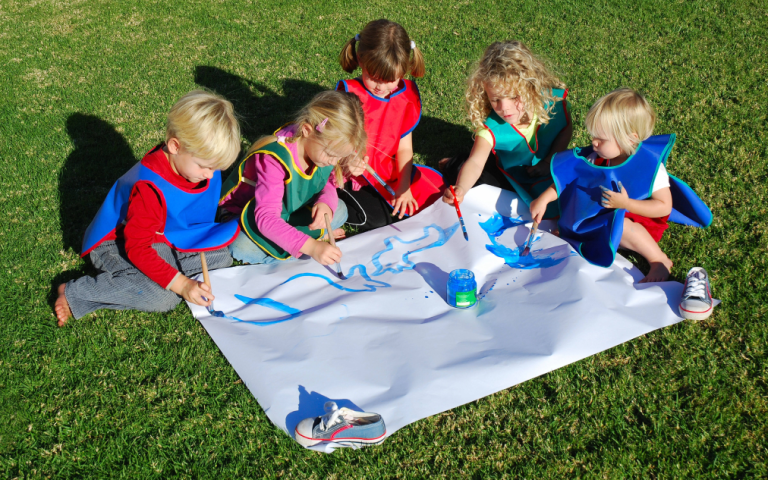Written by Liau Alex
Mastering the skill of self-feeding is a significant milestone in a child’s growth, promoting independence and boosting their confidence. However, children with special needs, such as those with sensory processing disorders or motor skill challenges, may encounter unique difficulties in achieving this milestone. This article will explore effective strategies for teaching self-feeding skills to children with special needs. We will discuss the importance of this milestone and offer solutions to address the specific challenges they may face along the way.
Understanding the Child’s Needs
Before starting to teach a child how to feed themselves, it’s important to check how well they can move their body. This includes looking at how well they use their hands and arms, how strong they are, and how well they can control their movements. Understanding where they might struggle can help us find ways to support them better as they learn and grow.
Identifying sensory sensitivities: Many kids with special needs have strong reactions to things like textures or flavors, which can make it hard for them to eat. They might avoid certain foods because they don’t like how they feel or taste. If we understand what bothers them, we can adjust mealtime routines to make eating a more positive experience for them.
Creating a Supportive Environment
Adapted utensils and dishes: Investing in adaptive utensils and dishes designed for children with special needs can significantly enhance their ability to self-feed. These tools are designed to make it easier for them to hold onto, with bigger handles or sections on plates to keep food from mixing. Some utensils are also heavier to help kids who have trouble with shaky hands.
Seating arrangements: Proper seating arrangements are essential for promoting successful self-feeding. Ensure that the child’s chair is stable and appropriately sized for their comfort and support. Positioning the child at the table at a comfortable height and distance from their food can facilitate better reach and control during meal times.
Implementing Structured Mealtime Routines
Consistent schedule: Establishing a consistent mealtime routine can provide structure and predictability for children with special needs. Stick to regular meal and snack times to help regulate their appetite and energy levels. Consistency can also create a sense of security and familiarity, reducing anxiety around meal times.
Visual aids: Visual supports, such as picture schedules or visual timers, can be invaluable tools for children with special needs. Use visual aids to outline the sequence of mealtime activities, from setting the table to cleaning up afterwards. Visual cues can help reinforce routines and expectations, empowering the child to participate more independently.
Encouraging Independence and Positive Reinforcement
Gradual progression: Teaching self-feeding skills is a gradual process that requires patience and persistence. Start by introducing simple tasks, such as scooping food with a spoon or picking up finger foods, and gradually increase the complexity as the child gains confidence and proficiency. Break down larger skills into smaller, manageable steps to prevent overwhelm and build success.
Celebrating small victories: Celebrate every milestone, no matter how small, along the journey to self-feeding independence. Offer praise and encouragement for each attempt, regardless of the outcome. Positive reinforcement can boost the child’s self-esteem and motivation, making them more willing to engage in mealtime activities and take ownership of their feeding skills.
Teaching self-feeding skills to children with special needs requires a combination of patience, creativity, and understanding. By assessing the child’s individual needs, creating a supportive environment, implementing structured routines, and offering encouragement along the way, caregivers can empower children with special needs to develop essential life skills and foster greater independence at meal times. With the right strategies and support, every child can achieve success in mastering self-feeding skills, laying the foundation for a lifetime of healthy eating habits and independence.
Are you curious about helping individuals with special needs learn to feed themselves? Nurture Pods offers a free online course that can assist you. This course covers various developmental disorders and how to manage them, including Autism, ADHD, and anxiety disorders. We’ll discuss the challenges these individuals may encounter and ways to support them.
In the course, we’ll explore the unique aspects of these conditions and the difficulties they may present. We’ll also share effective methods for providing assistance and teaching them. One important approach we’ll discuss is Applied Behavior Analysis (ABA), commonly used to aid individuals with Autism.
Join our course to gain valuable insights and skills for working with people who have special needs. Whether you’re a parent, teacher, or caregiver, this course can empower you to make a positive impact in their lives. Don’t miss out on this opportunity to learn and contribute to their well-being. Sign up now with Alison and start your journey toward understanding and supporting children with autism!
About The Author
Liau Alex obtained his degree in Psychology from the National University of Singapore and specialises in childhood disorders, specifically learning and behavioural difficulties. He has many years of experience working with children exhibiting a wide array of learning and behaviour challenges, many of whom have been diagnosed with autism spectrum disorder (ASD).
As an author, Alex has two titles published by Future Horizons Inc. (USA), the world leader in autism and sensory resources. Schools worldwide have used his books for inclusive education and parent training for children with special needs. Titles under his name include School Shadow Guidelines (2015) and A Parent’s Guide to Early Intervention (2021).
Alex received training on early intensive behavioural intervention (EIBI) in Australia and subsequently went to the USA, where he received relationship development intervention (RDI) training under Dr Steven Gutstein and Dr Rachel Sheely. He has presented in Australia, Houston, and Singapore and has also been invited to participate in media interviews. Furthermore, he has worked with clients from across the globe, including China, Taiwan, Australia, the United Kingdom, and the United States.









